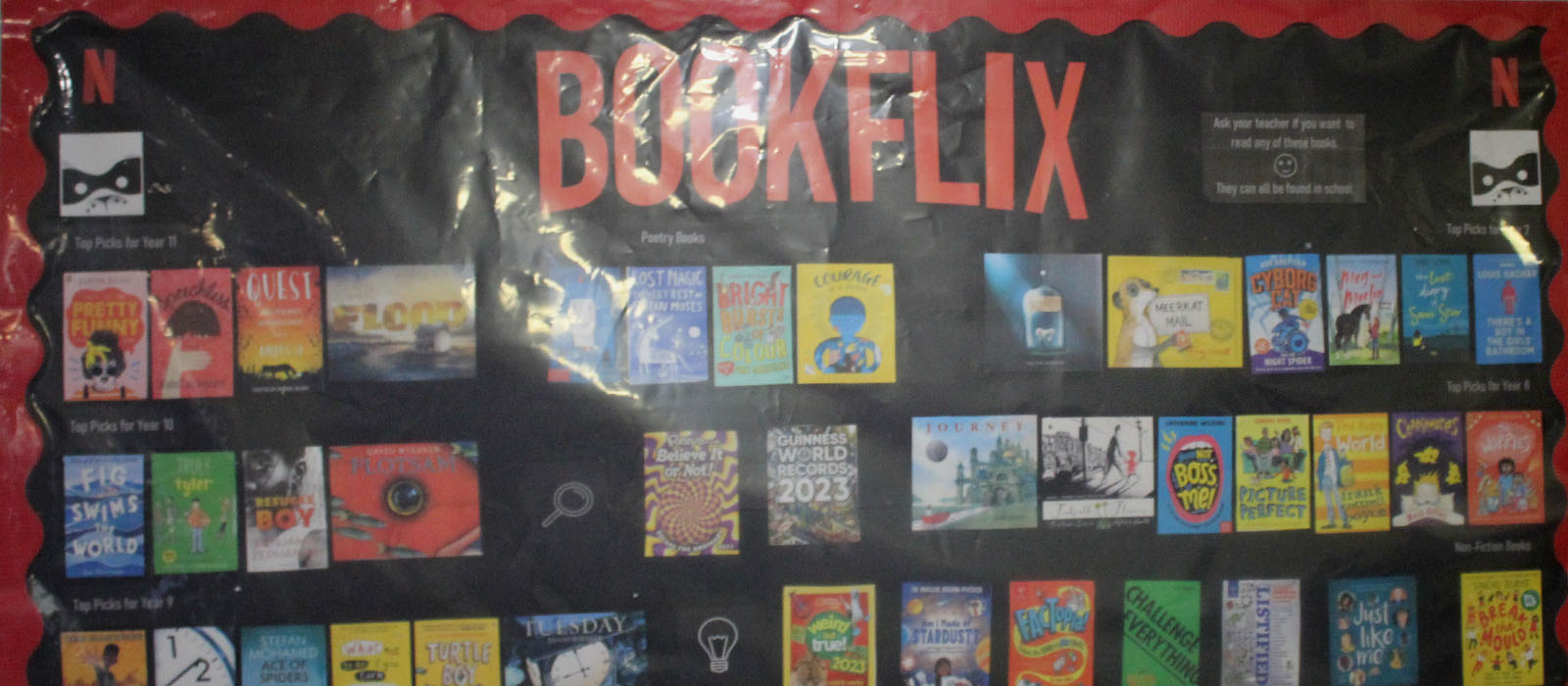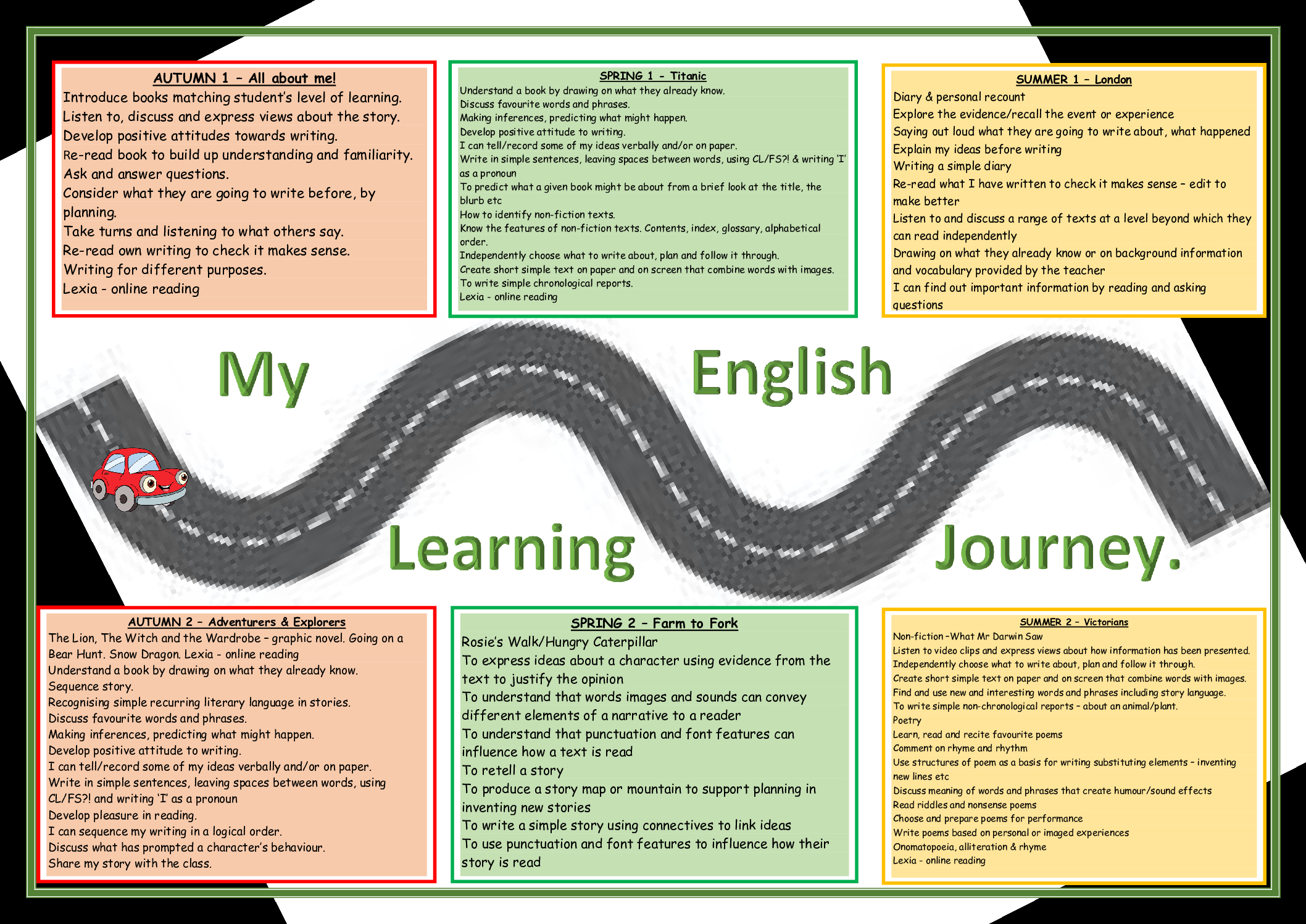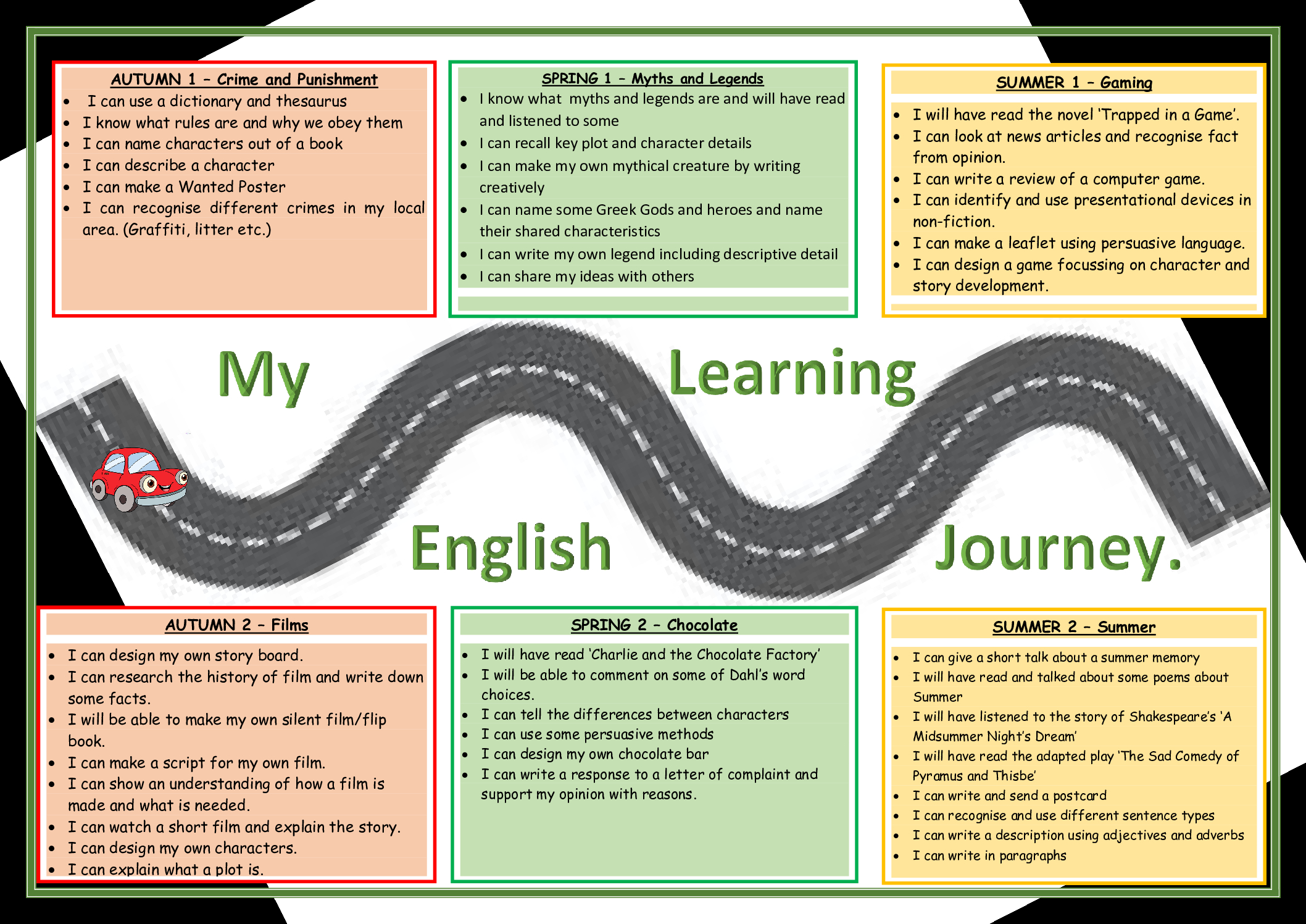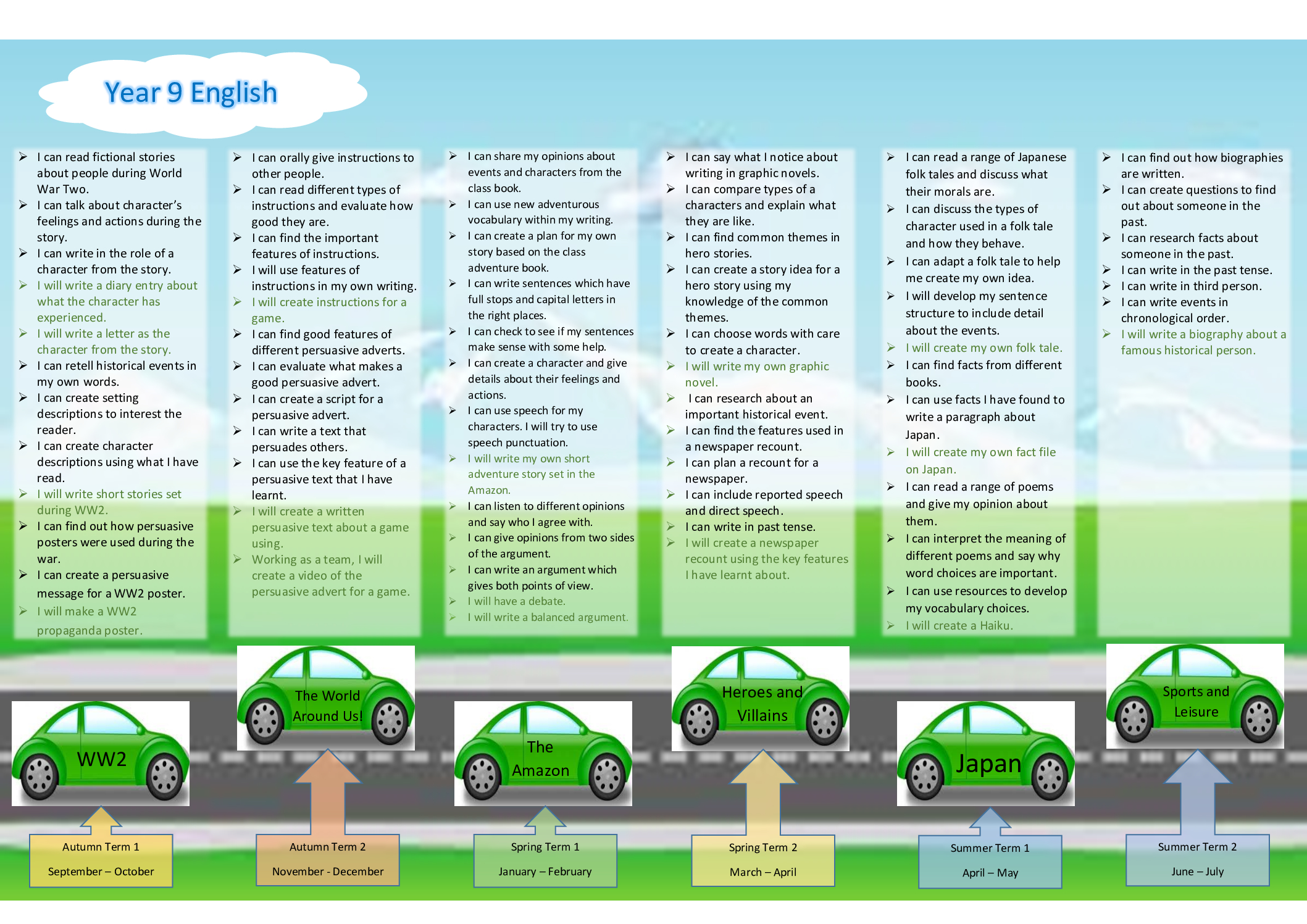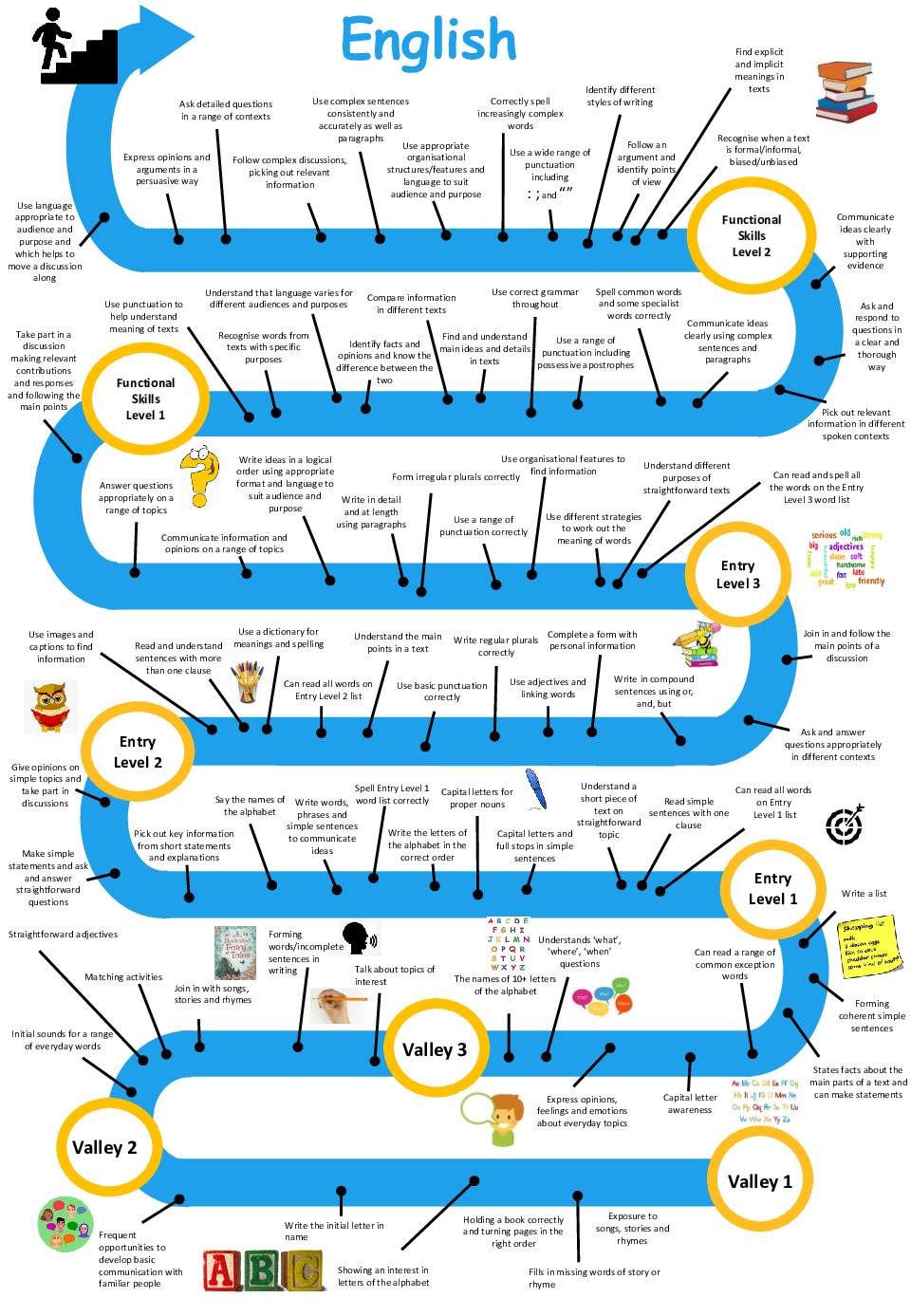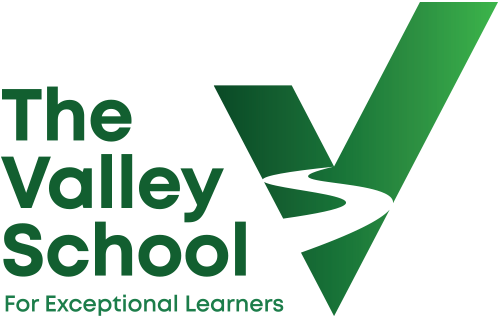Intent – What are we aiming to achieve through our curriculum?
- To develop a love of reading and an appreciation of different genres and forms.
- To develop the habit of reading for pleasure.
- To establish effective speaking and listening skills to support discussion and enhance learning.
- To build communication skills which will prepare pupils for adulthood.
- To develop a wide vocabulary which can be used verbally and within writing.
- To engage pupils through relevant and varied lessons.
- To equip pupils with a command of the spoken and written word.
- To encourage pupils to see issues from other perspectives than their own and to broaden their ideas about topics.
- To invite pupils to consider cultural topics and beliefs that may differ from their own.
- To explore, through fiction and non-fiction, issues that impact on young people.
- To stimulate discussion and debate through topical content.
- The acquisition of functional reading, writing and speaking and listening skills to support independence within the community as well as for post-16 education and the world of work.
- To recognise the different purposes of texts, including those that an individual might encounter in everyday life.
- To write for a wide range of purposes and audiences.
- To ensure all students leave The Valley School with an English qualification which reflects the best of their ability.
Implementation – How are we delivering our curriculum?
- The National Curriculum is followed as closely as possible, with differentiated and personalised learning opportunities.
- Half-termly schemes of work with a named key text to ensure reading is a part of every lesson.
- Thematic units at KS3 to promote cross-curricular learning which enables literacy skills to be applied in a range of contexts.
- Engaging and relevant texts, with content that helps to develop students’ understanding of the world around them and enables them to consider social, moral and ethical issues.
- Lexia online reading programme to support pupils in building core reading skills.
- Shared reading during lessons; students to regularly read aloud but also regular adult reading aloud to model effective reading techniques.
- Phonics strategies modelled and practised in all subject areas to support reading and spelling
- Spelling is taught explicitly and discreetly across the school.
- Exposure to a range of texts – fiction and non-fiction.
- Opportunities for speaking and listening are built into every lesson.
- Years 7, 8 and 9 have all of their lessons together as a class and are taught English by their class teacher. Years 10 and 11 are taught by a subject specialist.
- At The Valley School, the English curriculum is designed to build upon and develop previous skills and subject knowledge. Due to the learning difficulties of many of our students, it is necessary to build in frequent opportunities for over-learning in order to consolidate fundamental skills that are essential for progression within English.
- Exposure to texts that an individual may encounter in everyday life, for example: application forms, menus, reviews, etc.
- We offer a range of qualifications in English:
- GCSE English Language
- Functional Skills Level 1 and Level 2 in English
- Entry Level 1, 2 and 3 in English
- Promotion of reading throughout the school, including World Book Day celebrations, reading displays, Drop Everything and Read and what teachers are currently reading notices.
- One to one reading interventions for targeted students.
- Regular formative assessments which inform future learning opportunities.
Impact – What difference is the curriculum making to our pupils?
- The vast majority of students at The Valley School meet or exceed their expected progress in English based on their starting points.
- The vast majority of students at The Valley School meet or exceed their expected outcomes.
- The vast majority of students leave The Valley School with at least one formally recognised English qualification.
- Students are well-prepared for the next stage of their education.
- Students will be equipped with the necessary literacy skills to navigate everyday settings.
- Students will have increased resilience.
- Literacy is embedded across the school and feeds into all subjects. Progress in English has a significant benefit for students in all other subjects.
- Functional skills and life skills are embedded within the English curriculum and are personalised for each student. This supports students as they make the transition into post-16 education and later the world of work.
Key Stage 3 Learning Journey
Year 7
Year 8
Year 9


